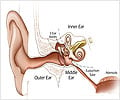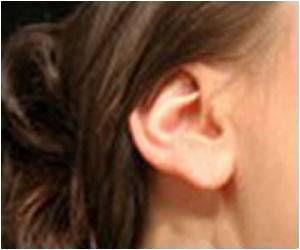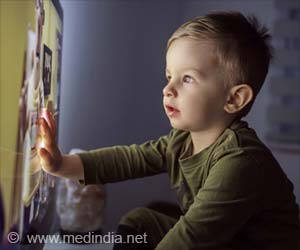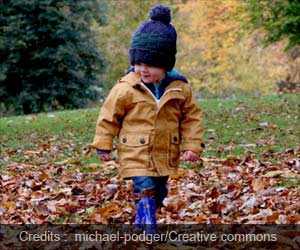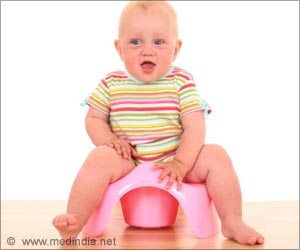The universal newborn hearing screening programs fail to identify all kids at the risk of hearing loss, says study.

In Illinois, UNHS became mandated by law in 2003 for use in all birthing hospitals. Nancy Melinda Young, M.D., from Children's Memorial Hospital, Chicago, and colleagues examined data for 391 children who received cochlear implants in Illinois from 1991 through 2008. Implant patients were divided into those born before mandatory UNHS (264 children) and those born after the screening became legally required (127 children). Study published in the March issue of Archives of Otolaryngology-Head & Neck Surgery.
Children born after the law was implemented were screened at a much higher rate than those born before (85 percent vs. 32.6 percent). Of the 127 children born after the UNHS mandate, 83 (65.4 percent) had a known cause of or at least one risk factor for hearing loss, and 21 of those children (25.3 percent) passed hearing screenings.
Overall, children screened after the UNHS mandate were significantly younger at diagnosis of hearing loss, age at diagnosis of severe to profound hearing loss and age at implantation than children born prior to passage of the law. Additionally, children who failed screenings were diagnosed (average age 5.9 months) and underwent implantation (average age 1.7 years) significantly earlier than those who passed or were not screened as newborns.
"Almost one-third of our pediatric implant recipients pass UNHS and are older at the time of initial diagnosis and implantation than their peers who fail UNHS," the authors conclude. "Delayed onset of sensorineural hearing loss [hearing loss stemming from the inner ear or central processing centers in the brain] limits our ability to achieve early diagnosis and implantation of a significant number of deaf children."
Source-Eurekalert

